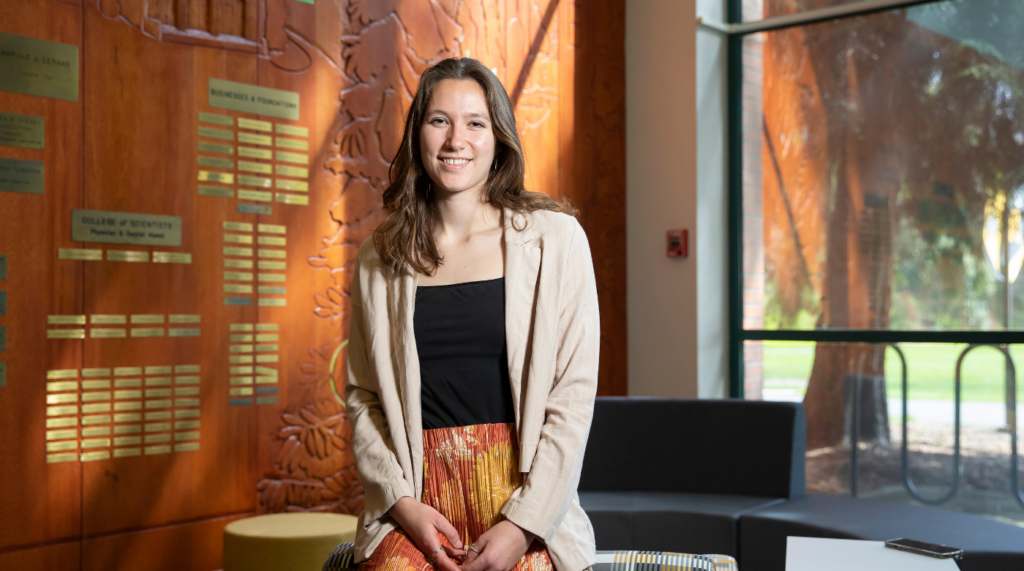Page 194 • (12,643 results in 0.035 seconds)
-
credits January TermGNUR 523: Role of the Advanced Practice Nurse (2) GNUR 534: Informatics & Nursing Healthcare (2) 2 credits 2 credits Spring TermGNUR 526: Leadership and Management (3) GNUR 527: Evaluations and Outcomes Research (3) GNUR 531: Clinical Outcomes Management I (4) GNUR 542: Advanced Pathophysiology & Pharmacology for Nursing Practice (3)3 credits 3 credits 4 credits 3 credits Summer TermGNUR 530: Resource Management (3) GNUR 532: Clinical Outcomes Management II (5) GNUR 596: Scholarly
-
Recommendation Committee, and past member of the Fee Arbitration Committee, Editorial Advisory Committee and Disciplinary Committee. She also served as president of the Latino Bar Association of Washington. She was appointed as legal advisor for the Mexican Consulate in 2005. Currently, she is a member of Family Law Executive Committee (FLEC) and serves as an Adjunct Hearing Officer on disciplinary matters. She also serves on the board of Jackson Street Music Project a non profit that teaches inner city
-
Recommendation Committee, and past member of the Fee Arbitration Committee, Editorial Advisory Committee and Disciplinary Committee. She also served as president of the Latino Bar Association of Washington. She was appointed as legal advisor for the Mexican Consulate in 2005. Currently, she is a member of Family Law Executive Committee (FLEC) and serves as an Adjunct Hearing Officer on disciplinary matters. She also serves on the board of Jackson Street Music Project a non profit that teaches inner city
-
INTRODUCTION MISSION AND HISTORY SECTION I: FACULTY CONSTITUTION AND BYLAWS SECTION II: ASPECTS OF FACULTY ORGANIZATION SECTION III: ACADEMIC POLICIES, PROCEDURES, AND SERVICES SECTION IV: PERSONNEL POLICIES AND EMPLOYMENT BENEFITS SECTION V: SPECIAL INSTITUTIONAL POLICIES AND PROCEDURES SECTION VI: REFERENCE MATERIAL
-

hopefully give them some helpful feedback.” Now, for her math capstone, she’s running a statistical analysis, using principal component analysis to simplify the dataset and suggest ways the U.N. agency can fine-tune their surveys and reporting. If collaborating with a U.N. agency seems unexpected for a chemistry major, for Jackie, it’s been a natural outcome from the innovative interdisciplinary approach of PLU’s International Honors Program (IHON). Through IHON, Jackie originally traveled to Oxford in
-
two-course sequence in Human Anatomy and Physiology, which is offered at PLU.Mathematics Courses Most PA schools require one semester of math and/or statistics. Chemistry Courses Take the following two-course sequence in general chemistry: CHEM 115 (General Chemistry I) CHEM 116 (General Chemistry II) Take the following two-course sequence in organic chemistry: CHEM 331/333 (Organic Chemistry I + laboratory) CHEM 332/334 or 346 (Organic Chemistry II + laboratory) Most physician assistant schools
-
two-course sequence in Human Anatomy and Physiology, which is offered at PLU.Mathematics Courses Most PA schools require one semester of math and/or statistics. Chemistry Courses Take the following two-course sequence in general chemistry: CHEM 115 (General Chemistry I) CHEM 116 (General Chemistry II) Take the following two-course sequence in organic chemistry: CHEM 331/333 (Organic Chemistry I + laboratory) CHEM 332/334 or 346 (Organic Chemistry II + laboratory) Most physician assistant schools
-
by or subject to the approval of Department or Agency heads, and which are designed to study, evaluate, or otherwise examine: (i) Public benefit or service programs; (ii) procedures for obtaining benefits or services under those programs; (iii) possible changes in or alternatives to those programs or procedures; or (iv) possible changes in methods or levels of payment for benefits or services under those programs.Category 6: Taste & Food Evaluation and Acceptance StudiesTaste and food quality
-
by or subject to the approval of Department or Agency heads, and which are designed to study, evaluate, or otherwise examine: (i) Public benefit or service programs; (ii) procedures for obtaining benefits or services under those programs; (iii) possible changes in or alternatives to those programs or procedures; or (iv) possible changes in methods or levels of payment for benefits or services under those programs.Category 6: Taste & Food Evaluation and Acceptance StudiesTaste and food quality
-
Program CostFor students beginning in Fall 2024, the cost for the 48-credit Marriage and Family Therapy Program is $52,608 or $1,096 per semester credit. Students may choose to do a five practica/theory sequence for an additional 2 semester credits. Students may choose to do a research project for an additional 4 semester credits. Tuition is based on a cohort model. Students must complete the program with their cohort to remain eligible for cohort pricing. Total program tuition: $52,608 Cost
Do you have any feedback for us? If so, feel free to use our Feedback Form.


